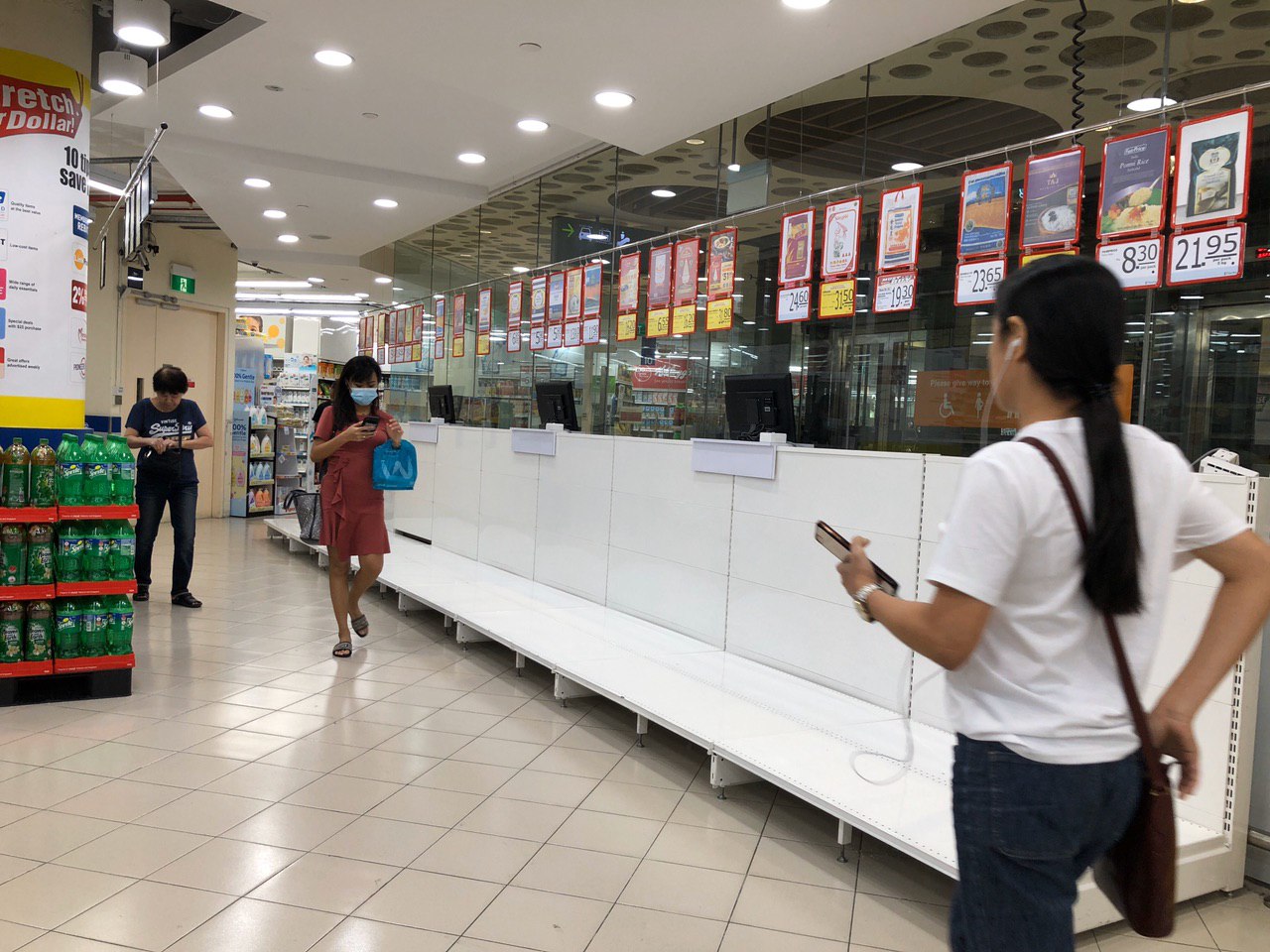Coronavirus: Psychological society lists 7 ways to manage panic following food, grocery buying sprees
Sign up now: Get ST's newsletters delivered to your inbox

An empty shelf of rice at the FairPrice outlet at Eastpoint Mall in Simei on Feb 8, 2020.
ST PHOTO: BENJAMIN SEETOR
Timothy Goh
Follow topic:
SINGAPORE - The Singapore Psychological Society has weighed in on the recent spate of panic buying, following the Republic's shift in its response level to the coronavirus on Friday (Feb 7).
The Disease Outbreak Response System Condition was raised from yellow to orange following the confirmation of four cases of the coronavirus infection here with no travel history to China or links to previous cases.
Reports later followed of people here buying large amounts of food and provisions from shops here, even as leaders called for calm.
This is a result of the way our brains work, wrote the society in a Facebook post on Saturday.
Founded in 1979, the society's members include psychologists and specialists in the field.
It said: "In modern society, numerous risks lurk around every corner. Whenever people witness an emergency situation or see someone getting harmed, our brains are hardwired to react in a certain way."
In times of uncertainty, a part of the brain which deals with emotions hijacks the regions of the brain's cognitive system that analyse and interpret behaviour.
This results in panic and groupthink behaviour, said the society, leading in turn to fight-or-flight or survival mode being activated in individuals.
"Such primal instincts date back to prehistoric times, where we needed to be on the constant lookout for danger in order to survive. The same primal instincts are activated in our present-day crises. We are hyper-focusing on the virus," it said.
While the objective of this mode is to keep us as individuals safe and protected, it however also inadvertently results in negative impacts on society, including xenophobia, high stress and panic buying.
"Panic buying further breeds anxiety rather than alleviates it, creating a downward spiral of panic and anxiety," wrote the society.
However, the post also noted that despite being wired for self-preservation, humans are also capable of responding in ways that benefit society as a whole.
The society highlighted seven ways for people to manage their fight-or-flight response, and instead behave in a manner that is helpful to society:
First, people need to acknowledge their commonality amid the crisis, validating and acknowledging each other's fears, naming them and pausing to consider their responses.
Second, they need to respect each other, asserting their feelings of discomfort or anxiety if the topic gets too difficult to handle, and likewise noticing discomfort in loved ones and respecting their decision not to engage with the topic if necessary.
Third, there is a need for everyone to exercise individual responsibility and buy as they need.
"Hoarding necessities also prevents others from attaining them, especially those who may need it more than you do. This creates huge inconvenience to others, and in turn, promotes a climate of hostility," wrote the society.
Fourth, people should intentionally expand their sources of information, and avoid getting consumed by inaccurate updates.
Fifth, they need to pause to think about how airing one's grievances, especially online, could generate additional stress and tension.
"We could seek to understand different perspectives and choices, rather than engage in the blame game," added the society.
Sixth, people should turn to reliable sources of information and fact check, which can help to ground those who are feeling overwhelmed with inconsistencies in the media.
Finally, the society advised those who require professional help to seek it.
It added: "Let us protect not only our physical health but also our mental health and the community we live in. Together we can play a part in building a more resilient society in the face of crisis."

